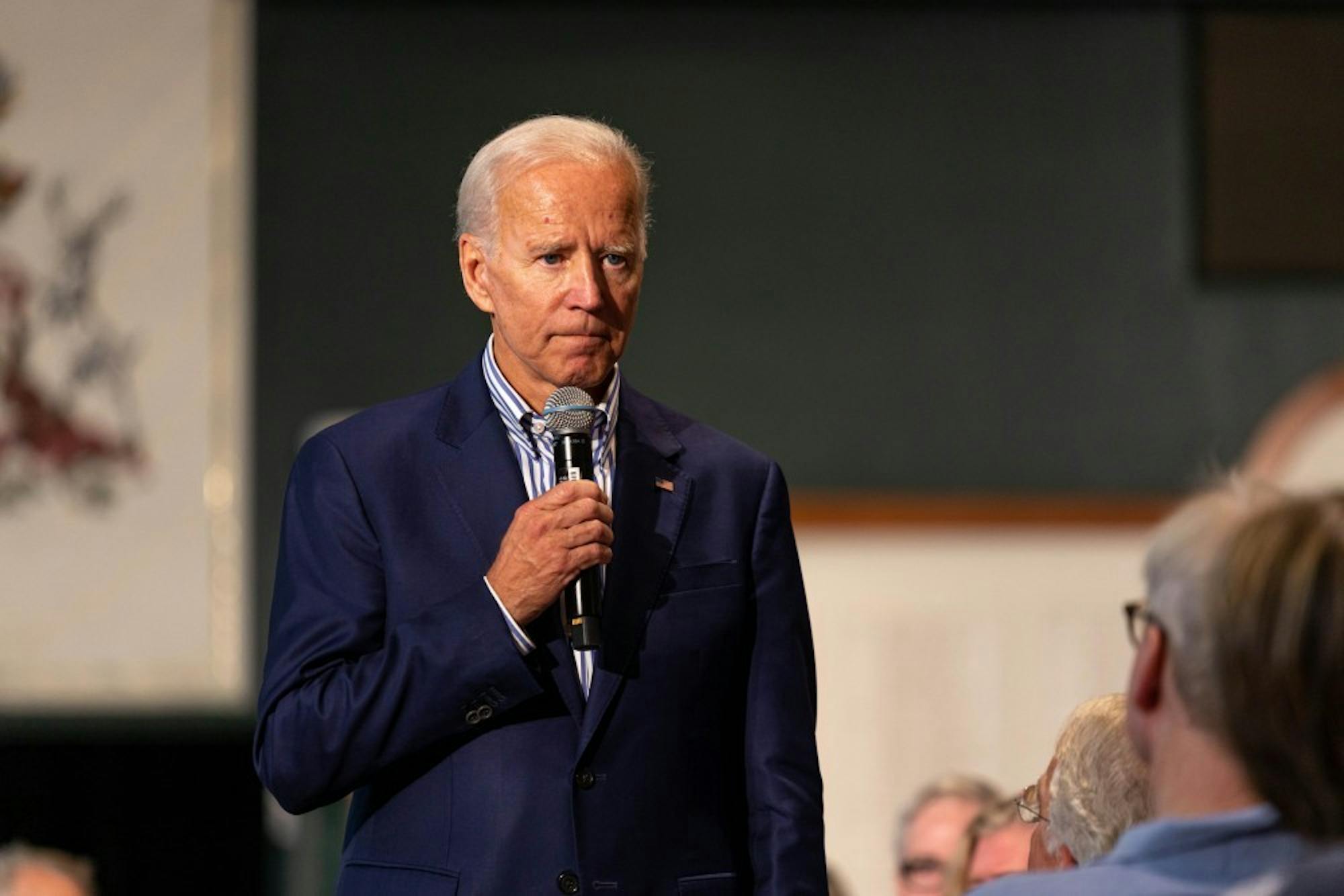A little over a year since President Joe Biden’s inauguration, Dartmouth professors and students expressed mixed reactions to his first year in office and reflected on his low approval rating.
According to estimates from polling analysis website FiveThirtyEight, as of this week, Biden’s approval rating is at 41% after one year in office. Former President Donald Trump’s approval rating stood at 38% one year into his presidency, while former President Barack Obama’s was 48%.
Students and professors had different reactions and explanations for Biden’s low approval rating. According to government professor Brendan Nyhan, the two biggest factors of Biden’s low popularity are inflation and the COVID-19 pandemic.
“The perception that he’s not addressing inflation or bringing the pandemic under control … is going to hurt him and would hurt any president,” Nyhan said. “He’s had some negative press too, especially on Afghanistan, which probably hurts him on the margin.”
Prescott Herzog ’25, a member of the Dartmouth College Democrats, echoed Nyhan’s sentiment, adding that if Biden can take control of the pandemic, his approval ratings would rise.
Kavya Nivarthy ’25, an ambassador for the Dartmouth Political Union, said the Biden administration reflects a return to normalcy.
“I would say it has certainly been a return to somewhat normalcy in terms of the way that he’s treated by the media and kind of the public discourse around his presidency,” she said.
“Overall, in my day to day life, I really haven’t seen that much of a change,” Jorie MacDonald ’25 said. “I mean, I think politics kind of only affects you as much as you follow it.”
Biden took the presidency just two weeks after a mob stormed the Capitol building in Washington attempting to halt the certification of the 2020 election and overturn it in favor of Donald Trump.
“We’re only a little more than a year since an insurrection, a violent insurrection that sought to overturn the results of a presidential election. And there are warning signs that efforts will be made to overturn the 2024 election,” Nyhan said.
According to Nyhan, while Biden has been “quite successful legislatively” in passing the Infrastructure Investment and Jobs Act, his agenda such as the Build Back Better Act and voting rights legislation has not garnered enough support in Congress.
“But, you know, the president can’t magically make members of Congress do what he wants,” he said. “That’s the dilemma every president faces.”
Nivarthy said she is disappointed with Biden’s returns on his campaign promises, especially in regards to the COVID-19 pandemic.
“The promises that Biden made on handling COVID versus the place we’re at now — [I’m] definitely disappointed,” Nivarthy said. “I think a lot of the rhetoric you see coming out of his administration is unhelpful.”
Part of Biden’s problem is his messaging and communication to the American people, according to Rockefeller Center associate director Ronald Shaiko.
“There’s some good people in the administration, they should be vocal,” he said. “[Biden] should be stepping back and letting them take the lead on these things.”
Nivarthy said that the likelihood of a strong Republican showing in the 2022 midterms elections is high, adding that positive performances by Republicans candidates for Governor in Virginia and New Jersey are evidence of this. In Virginia, for example, Republican Glenn Younkin won a statewide election in November which the Associated Press called a “warning” to Washington Democrats.
Prescott noted that throughout history, midterms have often served as a check on administrations with low approval ratings.
According to Nyhan, presidential approval ratings are a key factor in midterm elections. Nyhan added that voters tend to hinge their judgment of other candidates of the same party on the president at the time.
“This next year, 2022, is really going to be do or die,” Herzog said of the Biden administration.
According to Shaiko, the American people have shifted away from giving elected officials the “benefit of the doubt.” He cited the Trump administration and the highly partisan nature of both parties as causes of the American public’s lack of faith in government.
“Our default is not [assuming] good intentions anymore… that’s the time that we’re living in, there’s just a real distaste for governance,” Shaiko said.
Shaiko added that if Biden is going to “bring a win” for the Democrats in the midterm elections and for himself in 2024, he needs to appeal to his base more, rather than the progressive side of the Democratic Party.
“The American public is not where the progressive wing of the Democratic Party is,” Shaiko said.




